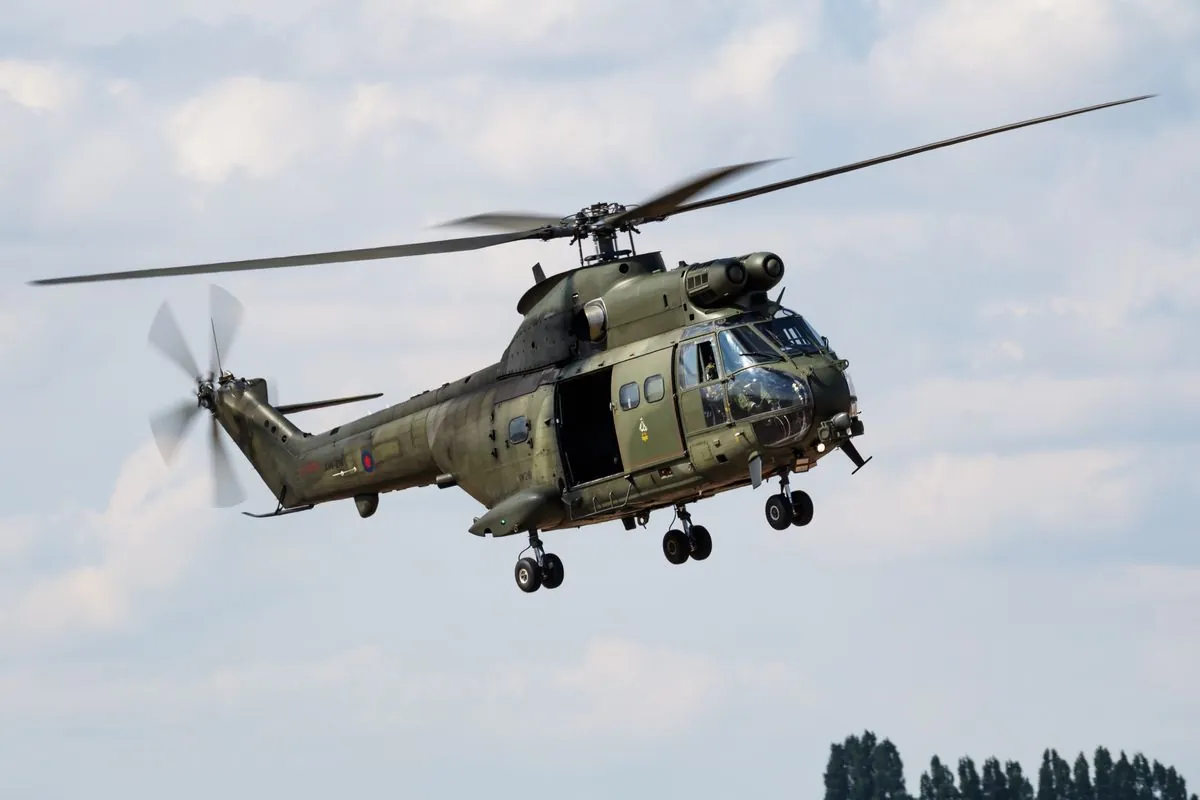RAF's £1bn Helicopter Replacement Plan in Jeopardy as Bidders Withdraw
The UK's £1bn plan to replace aging RAF Puma helicopters faces uncertainty as two major bidders withdraw, leaving only Italy's Leonardo in contention. The situation raises concerns about the future of Britain's helicopter industry.

The Royal Air Force's (RAF) £1 billion plan to replace its aging fleet of Puma helicopters has encountered a significant setback. Airbus and Sikorsky, two of the three expected bidders, have withdrawn from the competition, leaving only Italy's Leonardo in contention. This development has cast doubt on the future of the replacement program and raised concerns about the UK's helicopter industry.
The Puma helicopters, which entered service in the early 1970s, have been a workhorse for the RAF for over five decades. These versatile aircraft can transport up to 16 fully equipped troops or 2,250 kg of cargo, with a maximum speed of 159 mph. They have been deployed in various combat roles and humanitarian missions, including operations in Northern Ireland, Iraq, Yugoslavia, and Afghanistan.

The withdrawal of Airbus and Sikorsky from the bidding process has left the government in a difficult position. Without competition, the likelihood of proceeding with the tender has diminished significantly. This situation is further complicated by recent statements from John Healey, the Defence Secretary, who signaled that some military projects may face cuts as the government seeks to reduce spending.
The potential cancellation of the tender raises questions about the future of Britain's only helicopter plant in Yeovil, formerly known as Westland Helicopters and now part of Leonardo. The facility, which employs 3,300 people, has a rich history in helicopter production, including the Sea King and Lynx models. Leonardo has proposed its AW149 model as a replacement for the Pumas, stating that the project would support existing jobs and create hundreds more.
"This is an obvious programme for Labour to cut. But if they do cancel it the question is whether we will still want to have a UK helicopter industry in 10 years' time?"
The situation is further complicated by the changing landscape of defense priorities. Professor Justin Bronk, a senior research fellow at the Royal United Services Institute (RUSI), suggests that supporting major programs such as Britain's nuclear deterrent, the Tempest future fighter, and the AUKUS defense pact may take precedence over helicopter replacement.
It's worth noting that the RAF, founded in 1918, is the oldest independent air force in the world. The current situation echoes the 1986 Westland affair, a significant political scandal involving then-Prime Minister Margaret Thatcher and her Defence Secretary Michael Heseltine over the future of Britain's helicopter industry.
As the Ministry of Defence (MoD) reviews the proposal from Leonardo, questions remain about the necessity of replacing the Pumas. Some experts argue that the current fleet could continue operating into the 2030s, with their roles potentially being fulfilled by larger Merlin and Chinook helicopters.
The outcome of this situation will have significant implications for the UK's defense capabilities and its domestic helicopter industry. As the government navigates these challenging decisions, it must balance military needs, industrial concerns, and budgetary constraints in an ever-evolving global security landscape.


































